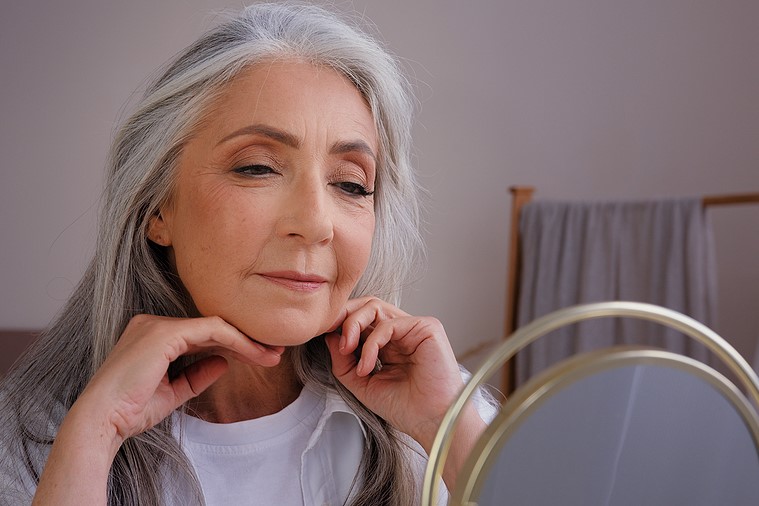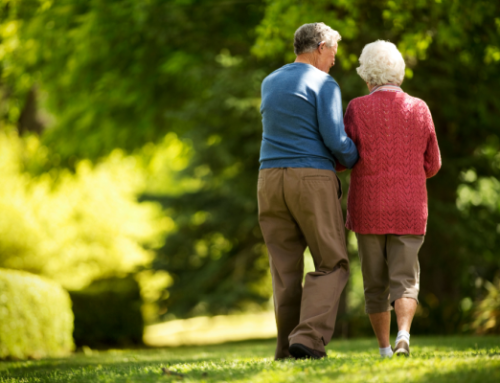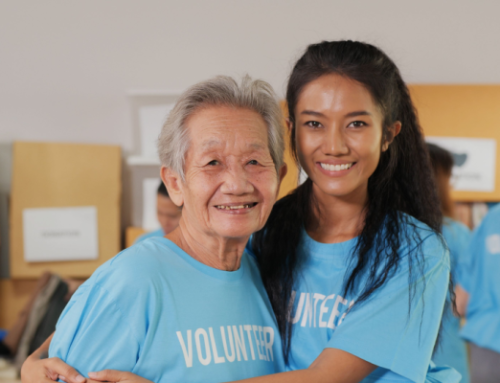I’ve seen a lot of articles lately on reversing the aging process and all of the research and technology being developed around it. Yet at the same time, there’s a huge movement around fighting ageism. There’s been a ton of progress on that front as well. So, it strikes me: Are those two ideas at odds with one another? If we are against ageism, is it ok to be searching for the fountain of youth at the same time?
Anti-aging science
If you’ve perused the skin care section of a drugstore recently, you know a lot of money is being spent on the development and marketing of anti-aging products and treatments. But the investments in research into slowing or reversing the aging process go way beyond the drugstore’s skin-deep solutions.
For instance, there was an article recently about the many start-up companies entering the marketplace that are looking for ways to turn back the biological clock and/or “cure” old age. Some are developing preventative drugs to inhibit the aging process while others are analyzing how to slow or stop aging on a molecular level.
Another article described research being conducted at Harvard on mice. Molecular biologists are searching for ways to actually reverse the aging process of cells, creating a “Benjamin Button” effect where the mice actually grow younger and live longer. The scientists hope that their findings can be applied to human subjects in the years to come. The project’s lead researcher “wants to change the world and make aging a disease,” a spokesperson explained.
>> Related: Could the Secret to Healthy Aging Actually Be Reverse Aging?
The ethical conflict of anti-aging and ageism
I believe there are a number of ethical issues around such anti-aging or reverse aging research. First, should these scientific advancements’ price point put them only within reach of the wealthy, will we create a class of elite elderly at the expense of the middle class?
Additionally, there are questions about whether putting resources toward this type of research is taking funding away from the study of other curative drugs. Are these billions of dollars better spent on the development of treatments that could benefit a broader swath of the population?
And then there is the moral question about what it says about our society that we are so afraid or resistant to the concept of being “old.” We have been trying to take steps forward with fighting ageism and embracing the concept of “positive aging.” But negative attitudes about aging persist, particularly in wealthier countries like the United States.
A research project being conducted by social scientists in 57 countries called the World Values Survey (WVS) asked more than 83,000 people of all age groups about their sentiments on aging. The World Health Organization (WHO) then took the WVS data and analyzed the results. WHO found that 60% of survey respondents said that they don’t feel that older people are respected. But what may surprise you about the WHO analysis is that they found the lowest levels of respect for older people were reported in higher income countries.
The true impact of our negative feelings about aging
At first glance, you might think that these negative feelings about aging and the elderly are bad, of course, but what you may not realize is the truly detrimental impact they can have on older generations. A 2002 study conducted by Yale epidemiology and public health researchers found that such ageist sentiments actually had a negative impact on older people’s mental and physical health.
The study tracked 660 people age 50 and older over the course of up to 23 years. The researchers discovered that the participants who had more positive views about the aging process actually lived 7.5 years longer than people who felt negatively about aging. In short, according to the study’s summary, “The findings suggest that the self-perceptions of stigmatized groups can influence longevity.”
>> Related: Positive Aging: Changing Your Mindset About Growing Older
Finding the balance between fighting aging and embracing age
So, how do we as a society strike a reasonable balance between a desire to stay young and healthy with a positive perspective on growing older? It can be a difficult line to walk. Unlike stereotypes on gender or race, many of the biases held about “old people” are formed many decades before a person actually becomes an “old person” themselves. In other words, we develop these sentiments about a group, and then before we know it, we have become a part of that very group.
With this deep-rooted psychology in mind, it perhaps becomes a bit easier to understand why so many are resistant to the idea of growing older. As we age, what used to be “those people” eventually becomes “us people.”
While advancements in anti-aging research can have their place — such as improving health to increase longevity — we should not lose the forest for the trees. Our society also must look inwardly to examine the root causes of resistance to aging and our fear of growing older. If the source of this inner-struggle is of our own making — because of our deep-seeded societal ageism — we must work harder to change those views.

FREE Detailed Profile Reports on CCRCs/Life Plan Communities
Search Communities






